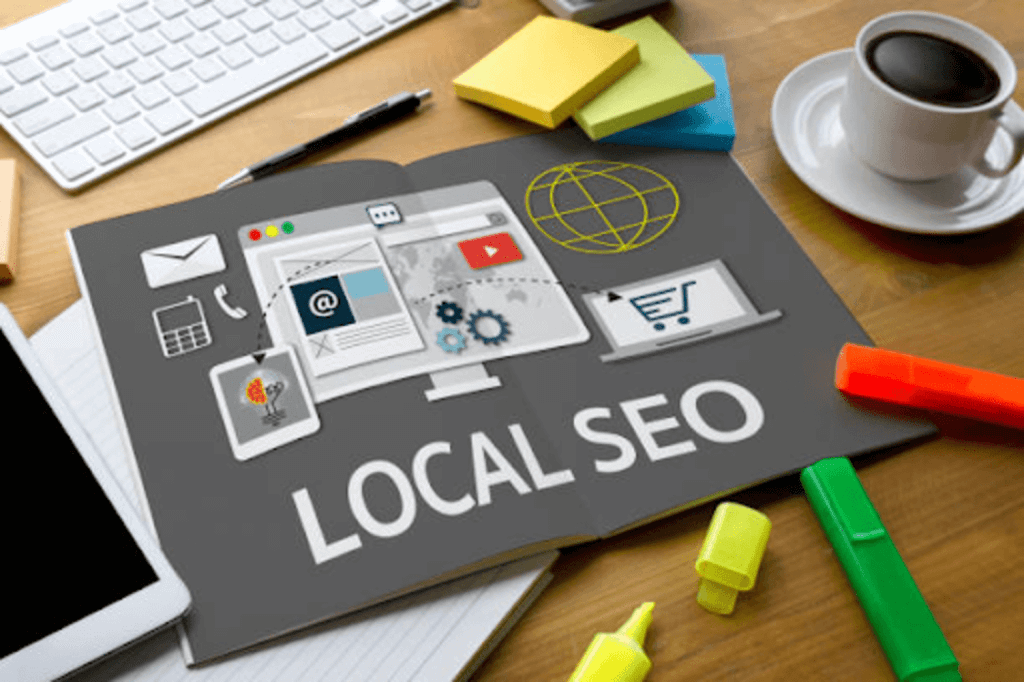
In the vast landscape of the internet, where businesses strive to stand out on a global scale, there’s a crucial aspect of digital marketing that often gets overlooked: local search engine optimization (SEO). If you’re a local business looking to connect with customers in your area, local SEO is not just a valuable strategy; it’s a necessity. In this blog, we’ll explore the significance of local SEO, its impact on small and medium-sized businesses, and practical tips to enhance your business’s visibility in your community.
The Power of Local SEO
Local SEO is a specialized branch of search engine optimization that focuses on optimizing your online presence to attract local customers. Its goal is to ensure that your business appears in local search results when people in your area are looking for products or services you offer. Local SEO is not only about reaching a broad audience but also about connecting with those who are physically close to your business.
The Importance for Local Businesses
Increased Visibility:
Local SEO ensures that your business appears in local search results, making it more visible to potential customers in your community. When people search for businesses “near me” or specific services in their area, a strong local SEO strategy can put your business front and center.
Mobile Searches and Local Intent:
With the rise of smartphones, local searches have become a daily habit for many consumers. People often use their mobile devices to find nearby businesses, read reviews, and make quick decisions. Local SEO ensures that your business is well-positioned for these on-the-go searches.
Competition with Big Brands:
Local businesses often compete with larger, national brands. Local SEO levels the playing field by giving smaller businesses the opportunity to appear prominently in local search results. This allows you to compete effectively for the attention of local customers.
Building Trust and Credibility:
Local search results often include reviews, ratings, and other forms of social proof. A strong local SEO presence not only puts your business in front of potential customers but also showcases positive feedback from satisfied clients. This builds trust and credibility in the eyes of local consumers.
Practical Tips for Effective Local SEO
Now that we understand the importance of local SEO, let’s delve into practical strategies to boost your business in your area:
1. Google My Business Optimization:
Your Google My Business (GMB) profile is a cornerstone of local SEO. Ensure that your profile is complete, accurate, and up-to-date. This includes your business name, address, phone number, business hours, categories, and a compelling business description. Encourage customers to leave reviews on your GMB profile, as positive reviews contribute to your local ranking.
2. Local Keyword Optimization:
Incorporate relevant local keywords into your website content, meta tags, and descriptions. Focus on keywords that reflect the products or services you offer and the location of your business. For example, if you’re a bakery in Seattle, optimize for terms like “Seattle bakery” or “best pastries in Seattle.”
3. Localized Content Creation:
Develop content that speaks directly to your local audience. This could include blog posts, articles, or resources that highlight local events, news, or trends. Creating location-specific content not only engages your community but also signals to search engines that your business is relevant to local searches.
4. NAP Citations:
Ensure consistency in your business’s name, address, and phone number (NAP) across all online platforms, directories, and listings. This consistency helps search engines and users verify your business information, boosting your credibility. Check popular local directories, such as Yelp, Yellow Pages, and TripAdvisor, and ensure your NAP information is accurate.
5. Local Link Building:
Acquire high-quality backlinks from local websites, businesses, and community organizations. These local links signal to search engines that your business is connected to the community and adds authority to your local SEO efforts. Consider sponsoring local events, participating in community initiatives, or collaborating with nearby businesses to build local links.
6. Mobile Optimization:
Given the prevalence of mobile searches for local businesses, ensure that your website is mobile-friendly. A responsive design ensures a seamless experience for users on various devices. Google prioritizes mobile-friendly websites in its search results, so mobile optimization is critical for local SEO success.
7. Online Reviews Management:
Actively manage and respond to online reviews on platforms like Google, Yelp, and Facebook. Positive reviews contribute to your business’s credibility, while responding to negative reviews demonstrates your commitment to customer satisfaction. Encourage satisfied customers to leave reviews, and address any concerns or issues raised in negative reviews.

8. Local Schema Markup:
Implement local schema markup on your website to provide search engines with additional information about your business. This markup can include details like your business’s name, address, phone number, operating hours, and customer reviews. Local schema markup enhances the rich snippet that appears in search results, providing more information to users.
9. Local Social Media Engagement:
Actively engage with your local community on social media platforms. Share updates about your business, showcase local events, and encourage user-generated content from your customers. Engaging on social media not only builds a sense of community but also contributes to your overall online presence.
10. Monitor and Analyze Performance:
Regularly monitor the performance of your local SEO efforts using tools like Google Analytics and Google Search Console. Track key metrics such as local search rankings, website traffic, and customer interactions. Analyzing performance data allows you to identify what strategies
Case Study: The Impact of Local SEO on a Boutique Coffee Shop
Let’s consider a case study of a small boutique coffee shop located in a suburban area. With a strong focus on local SEO, the coffee shop implemented the following strategies:
Optimized Google My Business Profile:
The coffee shop ensured that its GMB profile was complete, including accurate business information, high-quality photos, and regular updates about menu changes and promotions.
Localized Content Creation:
The coffee shop regularly published blog posts and social media content that highlighted local events, collaborations with nearby businesses, and behind-the-scenes glimpses of the baristas at work.
Active Social Media Engagement:
Engaging with the local community on social media platforms, the coffee shop responded to customer comments, shared user-generated content, and promoted community events.
Online Reviews Management:
The coffee shop actively encouraged customers to leave reviews on platforms like Google and Yelp. Additionally, they responded promptly and thoughtfully to both positive and negative reviews, showing a commitment to customer satisfaction.
Local Link Building:
Collaborating with nearby businesses, the coffee shop acquired local backlinks through joint promotions, sponsorships of community events, and participation in local business directories.
As a result of these efforts, the coffee shop experienced a significant increase in foot traffic, positive online reviews, and brand visibility within the local community. The combination of an optimized online presence and active community engagement contributed to the coffee shop becoming a local favorite.
The Future of Local SEO
As technology continues to advance and consumer behaviors evolve, the future of local SEO holds several trends and considerations:
Voice Search Optimization:
With the rise of voice-activated devices, optimizing for voice search is becoming increasingly important. Local businesses should focus on natural language queries and ensure that their online content is voice-search friendly.
Hyperlocal Targeting:
Advances in location-based technology will enable businesses to target customers with even greater precision. Hyperlocal targeting allows businesses to tailor their marketing efforts to specific neighborhoods or even individual streets.
Augmented Reality for Local Discovery:
Augmented reality (AR) has the potential to transform local discovery. Businesses could use AR to provide virtual tours, showcase products in a real-world context, and engage customers with interactive experiences.
Integration of Local and E-Commerce:
The integration of local SEO with e-commerce platforms is likely to become more seamless. Businesses should optimize their online presence to drive both online and offline transactions, ensuring a holistic approach to customer engagement.
Local SEO for Multi-Location Businesses:
For businesses with multiple locations, optimizing for local SEO becomes more complex. Strategies such as individualized GMB profiles for each location, localized content, and targeted local advertising will be crucial for success.
Local SEO is a dynamic and essential aspect of digital marketing for businesses aiming to connect with their local communities. By optimizing your online presence, engaging with your audience on a local level, and staying abreast of evolving trends, you can position your business as a go-to choice for customers in your area. As the digital landscape continues to evolve, local SEO remains a powerful tool for boosting your business in your community and creating lasting connections with local customers.



